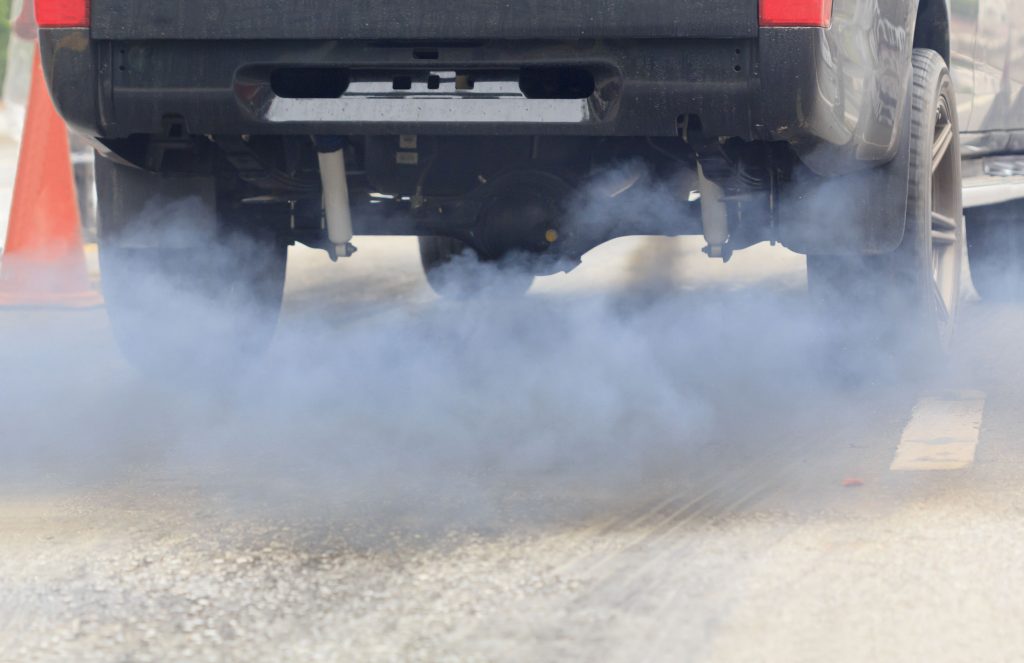
At a rally outside of Detroit, Donald Trump announced a plan to pull back on fuel emissions regulations put in place during Barack Obama’s presidency. Trump met with auto industry executives in Ypsilanti, Michigan, to discuss a plan to review the measures known as CAFÉ standards, which would require companies to increase the gas mileage of vehicles, moving from 27.5 mpg to 54.5 mpg by 2025, according to an article on mlive.com. For the time being, Trump’s proposal would not affect California’s ability to monitor its own emissions via a waiver program that goes back to 1967.
During his speech, Trump attacked China saying that the country’s entrance into the World Trade Organization is the cause for 60,000 factories shutting down. He vaguely threatened to punish companies who move to other countries. He said, “We’ve gone through it for many years, decades. Not going to happen anymore. And if it is, there’s consequences to pay for the companies that desert us and fire our employees. There are consequences.”
Attack on the EPA
Trump’s plan follows suit with other recent moves to diminish the influence of the Environmental Protection Agency (EPA). Trump is expected to direct the EPA to rescind regulations imposing limits on power plant carbon-emissions. Furthermore, the President’s budget proposal suggests a 31 percent cut to the EPA. This is in addition to a possible 17 percent budget cut to the National Oceanic and Atmospheric Administration (NOAA), an agency devoted primarily to climate science.
Trump has not yet diminished emission standards. He has promised to reinstate a midterm review in 2018 that was eliminated late in Obama’s presidency in favor of maintaining stricter fuel economy regulations for a longer period. Trump is responding to Auto Industry Executives who wrote a letter to the EPA stating that the Obama regulation “may be the single most important decision that EPA has made in recent history.” Also, the executives argued that the automotive industry would lose 1.1 million jobs due to decreased sales.
Following this line of thinking, Trump claimed that he and his administration “are going to ensure that any regulations we have protect and defend your jobs, your factories. We’re going to be fair.”
Climate Change and Poverty
But will these measures really be fair?
When it comes to emission standards, we are talking about the future of the planet and the deadly impact that climate change will have (and does have) on the poorer regions of the world. According to the 2014 report by the Intergovernmental Panel on Climate Change (IPCC), mitigating the effects of greenhouse gases is a necessary step toward the eradication of poverty. The report goes on to suggest that mitigation efforts would “fuel […] net employment gains.” And according to Jim Skea, a professor at Imperial College London and an IPCC working group vice-chair, “If you wait, you also have to do more difficult and expensive things.” That is, if governments wait until 2030 to reduce emissions, the cost of carbon-dioxide reduction could rise by 50 percent, which could put more pressure on an economy trying to recover jobs. What we learn from the IPCC report and other similar studies, is that the issue is far more wide reaching and complex than Trump and his acolytes make it out to be. The slow decline of planetary health is inextricably linked to poverty and pre-mature death. Therefore, to address the latter, we must also address the former (and vice versa). Only then will we approach something like a “fair” system.



Leave a Comment